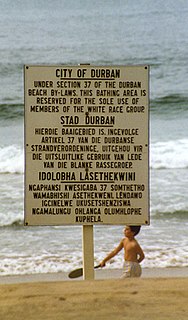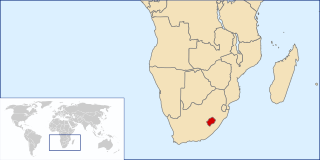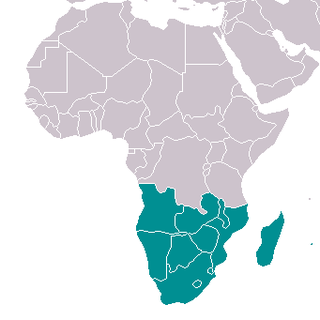
A United Nations resolution is a formal text adopted by a United Nations (UN) body. Although any UN body can issue resolutions, in practice most resolutions are issued by the Security Council or the General Assembly.

United Nations Security Council resolution 591, adopted unanimously on 28 November 1986, after recalling resolutions 418 (1977), 421 (1977), 473 (1980) and 558 (1984), the Council strengthened the mandatory arms embargo against apartheid South Africa imposed by Resolution 418, and made it more comprehensive. Resolution 591 sought to clarify vague terms from previous resolutions on the topic.

In United Nations Security Council Resolution 417, adopted on October 31, 1977, after reaffirming Resolution 392 (1976), the Council condemned the continuing repression against black people and other opponents of apartheid, as well as the South African media and the mounting deaths of detainees. The Council foresaw that the continuation of such activities would lead to serious racial conflict with international repercussions.

United Nations Security Council Resolution 428, adopted unanimously on May 6, 1978, after hearing representations from the People's Republic of Angola, Zambia and the South West Africa People's Organisation (SWAPO), the Council reminded Member States to refrain from using threats and use of force in their international relations. Reiterating Resolution 387 (1976), the present resolution condemned South Africa for its armed invasion of Angola via South West Africa (Namibia).

United Nations Security Council resolution 454, adopted on 2 November 1979, after hearing representations from the People's Republic of Angola, the Council recalled resolutions 387 (1976) and 447 (1979), noting its concern and condemned the continuing attacks on the country by South Africa through illegally-occupied South West Africa.

United Nations Security Council resolution 473, adopted unanimously on 13 June 1980, after recalling resolutions 392 (1976), 417 (1977), 418 (1977), 454 (1979) and 466 (1980) and letters from the Committee for South Africa, the council expressed its concern and condemned South Africa for the killing of protesters, including schoolchildren, opposed to apartheid.

United Nations Security Council resolution 475, adopted on 27 June 1980, after hearing representations from the People's Republic of Angola, the Council recalled resolutions 387 (1976), 447 (1979) and 454 (1979), and expressed its concern and condemned the continuing attacks on the country by South Africa through occupied South West Africa.

United Nations Security Council resolution 503, adopted unanimously on 9 April 1982, after reaffirming Resolution 473 (1980), the Council expressed its concern at the death sentences issued by the Transvaal Provincial Division of the Supreme Court of South Africa against Ncimbithi Johnson Lubisi, Petrus Tsepo Mashigo and Naphtali Manana, all of whom were members of the African National Congress.

United Nations Security Council resolution 527, adopted unanimously on 15 December 1982, having heard representations from Moshoeshoe II of Lesotho, the Council condemned, alongside a General Assembly resolution, an attack by South Africa on Lesotho, resulting in damage and the deaths of 40 people.
United Nations Security Council resolution 533, adopted unanimously on 7 June 1983, after reaffirming Resolution 525 (1982), the Council expressed its concern at the death sentences issued to Thelle Simon Mogoerane, Jerry Semano Mosololi and Marcus Thabo Motaung, all members of the African National Congress.

United Nations Security Council Resolution 535, adopted unanimously on June 29, 1983, after examining the report of the Mission to Lesotho commissioned in Resolution 527 (1982), the Council reaffirmed its opposition to apartheid, commending Lesotho for providing sanctuary to refugees from South Africa.

United Nations Security Council resolution 546, adopted on 6 January 1984, after hearing representations from the People's Republic of Angola, the council recalled resolutions 387 (1976), 428 (1978), 447 (1979), 454 (1979), 475 (1980) and 545 (1983), and expressed its concern at the continuing attacks on the country by South Africa through occupied South West Africa.

United Nations Security Council resolution 547, adopted unanimously on 13 January 1984, after reaffirming previous resolutions on the topic, the Council expressed its concern at the death sentences issued to Malesela Benjamin Maloise, a member of the African National Congress.

United Nations Security Council resolution 571, adopted unanimously on 20 September 1985, after hearing representations from the People's Republic of Angola, the Council recalled resolutions including 387 (1976), 418 (1977), 428 (1978), 447 (1979), 454 (1979), 475 (1980), 545 (1983) and 546 (1984), and expressed its concern at the continuing attacks on the country by South Africa through occupied South West Africa.

United Nations Security Council resolution 577, adopted unanimously on 6 December 1985, after reaffirming Resolution 571 (1985), the Council endorsed a report by the Security Council Commission of Investigation, condemning the regime in South Africa for its continued and unprovoked attacks against the People's Republic of Angola through the occupied territory of South West Africa.

United Nations Security Council resolution 580, adopted unanimously on 30 December 1985, having heard representations from Lesotho and recalling Resolution 527 (1982), the Council condemned the recent attacks on the Kingdom of Lesotho by South Africa, resulting in loss of life and damage to property on 19 December, in which several South African refugees were murdered in Lesotho's capital Maseru by the South African Defence Force.

United Nations Security Council resolution 581, adopted on 13 February 1986, after hearing representations from Sudan and the front-line states and reaffirming resolutions 567 (1985), 568 (1985), 571 (1985), 572 (1985) and 580 (1985), the Council strongly condemned "racist South Africa" for its recent threats to perpetrate acts of aggression against neighbouring countries in southern Africa.

United Nations Security Council resolution 610, adopted unanimously on 16 March 1988, after reaffirming resolutions 503 (1982), 525 (1982), 533 (1983) and 547 (1984) expressing concern at the imposed death sentences of anti-apartheid activists, the Council noted the deteriorating situation in South Africa. Resolution 610 concerned the Sharpeville Six, accused of the murder of the Deputy Mayor of Sharpeville on 12 December 1985.

In United Nations Security Council resolution 615, adopted unanimously on 17 June 1988, after reaffirming resolutions 503 (1982), 525 (1982), 533 (1983), 547 (1984) and 610 (1988) expressing concern at the imposed death sentences of anti-apartheid activists, the Council noted the deteriorating situation in South Africa.

United Nations Security Council resolution 623, adopted on 23 November 1988, the Council noted with grave concern the death sentence imposed upon anti-apartheid activist Paul Tefo Setlaba, on the basis of "common purpose" in South Africa. The resolution at the meeting urgently called by Zambia strongly urged the Government of South Africa to commute Setlaba's sentence and stay his execution in order to further avoid aggravating the situation in South Africa.









